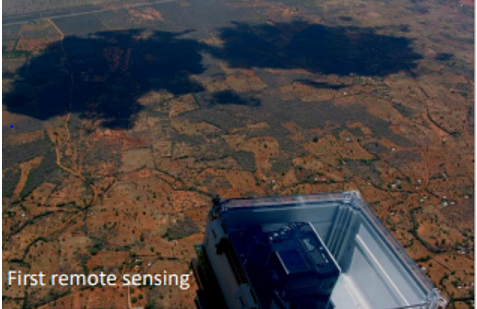Did you know that Isaac Newton's discoveries in the 17th century set the stage for the rapid scientific progress
we see today? The ripple effects of his work
have paved the way for the technological advancements driving the Fourth Industrial Revolution. As we enter a new era of artificial intelligence, automation, and data science, it's fascinating to look back at how one man's genius reshaped the world.
Over 60% of today's jobs will likely be transformed by technology in the next two decades, according to the World Economic Forum. Yet, the foundation for this
change was laid centuries ago, when Newton's laws of motion and gravity became fundamental principles in the scientific revolution. These principles continue to
influence how we build, think, and solve problems in today's ever-evolving tech landscape.
Isaac Newton's Contribution to the Scientific Revolution
Isaac Newton, whose enduring discoveries inspired the name Newton Academy, was a key figure in the Scientific Revolutions of the 16th and 17th centuries.
His work transcended mere discoveries, setting the groundwork for modern physics, engineering, and even the technologies we rely on today.
Some key contributions include:
• Laws of Motion: These laws are still relevant today, from engineering feats like skyscrapers and bridges to space travel and autonomous vehicles.
• Theory of Gravity: Newton's discovery of gravity led to significant advancements in our understanding of planetary movements, satellite orbits, and even the physics behind flight and space exploration.
• Calculus: Without Newton's invention of calculus, much
of the modern world, from algorithms that drive Al to advanced engineering simulations, would be unimaginable.
• Light and Optics: Newton's work in optics changed how we understand light, paving the way for technologies such as cameras, lasers, and fibre optics.
Linking Newton's Era to the Industrial Revolutions:
Let's fast forward through time to explore how Newton's influence has shaped each phase of the industrial
Revolution.
- First Industrial Revolution (18th-19th Century)
• Powered by steam engines, mass production, and
mechanization.
• Newton's principles underpinned the design of early machines and the scientific methods used to optimize production. - Second Industrial Revolution (19th-20th Century) Newton's emphasis on the scientific method, particularly the use of observation. experimentation, and mathematical proof, set the stage for methodical scientific research.
• The expansion of Newtonian mechanics allowed
for breakthroughs in electric motors, communication technology, and transportation systems. - Third Industrial Revolution (Mid-20th Century)
• The digital revolution: personal computers, the internet, and automation.
• Newton's work in logic and calculus laid a foundation for the algorithms, coding, and computational techniques driving the early development of computers. - Fourth Industrial Revolution (Today and Beyond) • Artificial intelligence, robotics, blockchain, and quantum computing
• Newton's legacy is alive in the Al systems that simulate human thinking, autonomous vehicles that apply motion laws in real time, and smart devices that transform
everyday life.
Why Is This Relevant to Tech Careers?
The brilliance of Isaac Newton and his profound contributions didn't just inspire his era—it continues
to drive today's world of tech, innovation, and problem-solving. Just like Newton asked deep questions about the world and sought groundbreaking solutions,
today's tech innovators must push boundaries to excel in their careers.
The Fourth Industrial Revolution requires talents who
not only understand the tech but can apply critical thinking, creativity, and problem-solving skills to global challenges. At Newton Academy, we believe that today's tech learners are tomorrow's innovators who will make the same revolutionary impact Newton made centuries ago.
What Does This Mean for You?
• Whether you're just starting out or looking to level up in tech, knowing the history of innovation provides context for where we're headed.
• Building a tech career today means being part of a global transformation —one where coding, Al, and Data science are the new tools of change.
• The tech skills you learn today could impact the next industrial revolution, making you not just a job seeker but a global problem-solver.
At Newton Academy, we believe that the next wave of tech leaders could come from anywhere-including you. If you're ready to harness these skills and build a successful career in tech, we're here to help you start that journey.
From Al and automation to Data Science to blockchain.
we provide the tools, mentorship, and community to help you become a global tech innovator.
Ready to Start Your Journey?
Take the first step today by exploring our tech courses and mentorship programs at Newton Academy. We'd love to hear from you: What tech-related topics would you love for us to write about next?
Drop your thoughts in the comments and let's keep the conversation going!
Contributor: Comfort Ibitoye [Wordsmith]


